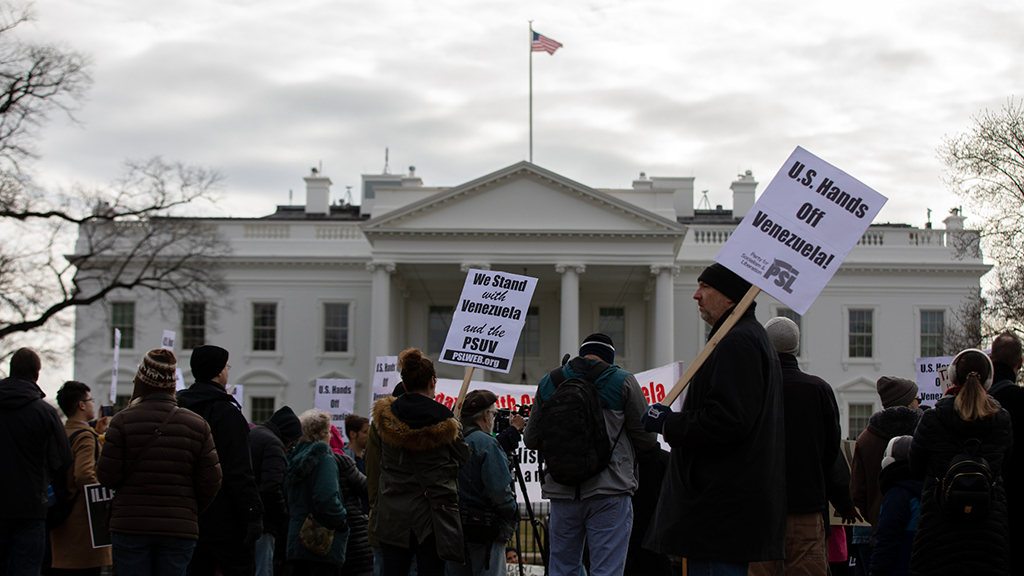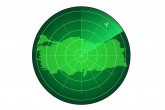It has been years now that observers of U.S. foreign policy, scholars of international relations and concerned allies of the U.S. have been asking similar questions in regards to the direction Washington is going. In every conversation, U.S. foreign policy is compared to its nature, proactivity and sometimes mistakes of the Cold War years. There is even some degree of idealization of U.S. foreign policy in those years by selective amnesia.
For the last two years, since Donald Trump became president, within the foreign policy community in the U.S. as well as observers around the world, the level of concern has been rapidly rising. However this increasing concern of the foreign policy elite in some ways contradicts the priorities of the American people. It is true that it may always have been so. At the end of the day in most of the elections of the 20th century foreign policy was not the primary factor that shaped voting behavior. And when we look at the post-Cold War years in the election of four different presidents we always see that the less foreign policy expertise, the better. Those presidential candidates that strategize to use his or her foreign policy credentials in the elections faced the adverse effects of this plan in the elections. American people in the post-Cold War years constantly voted for the candidate with less or no experience in foreign policy.
Eight years after this surprise victory of “putting our house in order type” candidate, this time his Vice President Al Gore ran for office. Al Gore was in Congress for 16 years before becoming the vice president of the U.S. In the House of Representatives he served in the Energy and Commerce committee and House Intelligence Committee. Later when he became a member of the Senate he served in the Armed Services Committee. During his vice presidential tenure he was the U.S. diplomat who negotiated the Kyoto Protocol and expressed strong opinions about foreign policy. When he became the Democratic nominee for the presidency, his rival was George W. Bush, governor of Texas. A candidate with no foreign policy experience, who was criticizing U.S. military overstretch and objecting any attempt to engage in nation building abroad. Bush won.
The Clinton-Trump race was no different. Hillary Clinton served as the first lady for eight years, served in the Senate for eight years, where she was a member of the Armed Services Committee. She quickly became an outspoken member of the Senate on foreign policy issues. More importantly in the first term of the Barack Obama presidency, she served as the secretary of state of the U.S. She was the architect of the Asia Pivot in U.S. foreign policy, one of the most important changes in the orientation of U.S. foreign policy in the recent decades. When the race between her and Trump started many assumed that it would be a smooth victory for Clinton. She has international stature. In presidential debates on foreign and security policy, she presented herself as the informed and capable candidate to increase U.S. standing around the world, increase the U.S. allies and posture. Donald Trump had opinions about U.S. foreign policy but did not have an experience. He called NATO obsolete and promised to withdraw the U.S. from multilateral engagements, such as the Trans-Pacific Partnership (TPP). He was another candidate that focused on “putting the house in order.” Trump won the election.
In the next few years, as the international system is changing and as some rising powers start to challenge U.S. predominance around the world, the direction of U.S. foreign policy will be extremely important in shaping future geopolitics. In this critical juncture, foreign policy elites need to leave their ivory tower and tightly knit circles in Washington and should educate, engage and be educated by the public opinion. Trying to derail the president’s agenda, to write pieces critical about the direction of U.S. foreign policy or to sink into despair is not a solution for them.
[Daily Sabah, 9 February 2019]
In this article
- Opinion
- Bill Clinton
- CENTCOM
- China
- Cold War
- DAESH
- Daily Sabah
- Donald Trump
- East of the Euphrates
- Elections
- Fight against DAESH
- George W. Bush
- gulf
- International Relations
- Iraq
- Kurdistan Workers' Party Terrorist Organization (PKK)
- Middle East
- NATO
- NATO Ally
- Operation Euphrates Shield
- Peace Corridor
- People's Protection Units (YPG)
- PKK - YPG - SDF - PYD - YPJ - SDG - HBDH - HPG - KCK - PJAK - TAK - YBŞ
- Safe Zone
- Soviet Union | Union of Soviet Socialist Republics (USSR)
- Syria
- Syrian Civil War
- Syrian Conflict
- Syrian Crisis
- Syrian Democratic Forces (SDF)
- Syrian National Army (SNA)
- Syrian National Coalition
- Syrian Opposition
- Syrian Refugees
- Terrorism
- Trump’s Syria Withdrawal
- Turkish Foreign Policy
- Turkish-American Relations
- Türkiye-US Relations
- Türkiye-US Security Relations
- Türkiye's Foreign Policy
- Türkiye's Operation Peace Spring
- Türkiye’s Operation Olive Branch
- U.S. House of Representatives
- United Nations (UN)
- United States (US)
- US Foreign Policy
- US Military
- US Withdrawal from Syria
- US-PKK/PYD/YPG/SDF Relations
- US-Terror Relations
- Vladimir Putin



